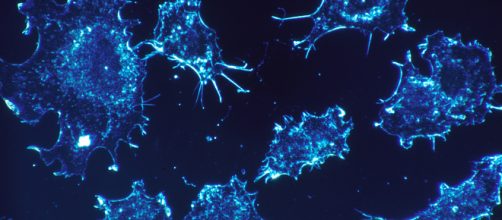February 4th is World Cancer Day, a day originally set forth by the Union for International Cancer Control (UICC) in 2008. The reason for the designation of such a day is to reduce stigma and misinformation about the cancer family of illnesses. Cancer isn't limited to specific type of person; it affects those from every walk of life, yet, there is still a great deal of sensitivity in broaching the subject of this serious medical epidemic to the masses.
World Cancer Day is part of an initiative to Raise Awareness about cancer to inform the masses about the prevalence, cause, and treatment of cancer and show support for those whose lives are affected by cancer.
Today is also Super Bowl Sunday in the United States, and some organizations are able to intertwine both the Superbowl and cancer awareness together in a message that gets out the message that cancer can be prevented:
Hepatitis B and C are the leading causes of liver cancer in the United States. So how can your reduce your risk? Get vaccinated, tested and avoid drinking too much alcohol!
— HBI-DC (@HBIDC) February 3, 2018
.#superbowl #hepatitisb #hepb #hepatitis #liver pic.twitter.com/rh05Vl5A4Z
How cancer happens
Inside of the body, cells are formed, they perform their essential functions to manage organ operations within the body, and afterwards, they die. Cells divide as needed in order to aid the body in its everyday tasks and duties.
Cancer is the multiplication of abnormal cells in the body, that ultimately prove to be destructive, fatal even. The abnormal cells come to be because the mechanism that controls the formation of a type of cell stops working.
The old cells thus do not die (they become immortal), and they go on to form abnormal cells at a rate that can't be controlled when they divide, or when they spread to other parts of the body via the lymph or blood vessels of the body (this is known as metastasis). New, abnormal cells may form a tumor due to the fact that there is an excess of them. Cancer cannot be fully defined as a "disease", but rather a host of diseases that all fall under the common name "cancer".
A call for action to reduce the 'global cancer burden'
The Union for International Cancer Control (UICC) called for action from the entire world in 2008 with its document titled: The World Cancer Declaration 2008: A call to action from the global cancer community. In this document, the UICC had released the information that cancer "kills more people than AIDS, Tuberculosis and malaria combined", and that there was "significant weakness" with regard to how resources were allocated to the reduction of cases of cancer all around the world, as medical authorities tended to place most focus of their work on the prevention of infectious diseases.
The declaration also touched on the stigma of the disease that is sometimes tied to public attitudes about the illness as well as contributing factors to developing cancer such as alcohol consumption, a lack of exercise, and use of tobacco products.
The 2008 declaration laid out actions that the UICC intended to reach by the year 2020, which, included: "Raise awareness about the need for culturally sensitive cancer risk reduction campaigns, along with public and professional education about cancer warning signs."
Declaring a World Cancer Day on which to shine a light on the causes and effects of cancer as well as support for those who are affected by it is part of that very action. The World Health Organization, which works in conjunction with the United Nations and the UICC has posted some tips on Twitter in order to inform people of how they can reduce their risk of developing cancer:
Today is #WorldCancerDay!
— WHO African Region (@WHOAFRO) February 4, 2018
Here are some ways to reduce your #cancer risk. 🍎🥕🥒🏃♀️🏊♀️🚴♀️🚭💉
Let's #BeatCancer. Let's #BeatNCDs.#WeCanICanhttps://t.co/1lFbG6cBIq pic.twitter.com/sQiaqHlvC3
Outreach on social media
The public is encouraged to get involved in spreading awareness with actions such as posting 'no hair selfies'.
In the United Kingdom, sporting a 'unity band' is a way that the British are choosing to show solidarity with cancer patients and their close ones in countries all around the world. The sale of unity bands funds life-saving cancer research. Among the many people flashing their unity bands, actor Richard Linnell of Hollyoaks fame has gotten in on the action and posted a selfie showing his support with one today:
On #WorldCancerDay I'm wearing my #UnityBand to remember my grandad. 1 in 2 people will be diagnosed with cancer in their lifetime. Help @CR_UK and @StandUp2C to end the battle against cancer by going to https://t.co/6ruAXWNDwQ or https://t.co/skXsz5RNcJ . Thank you all. 😘 pic.twitter.com/rqb2TUPc3k
— Richard Linnell (@septamus) February 4, 2018


